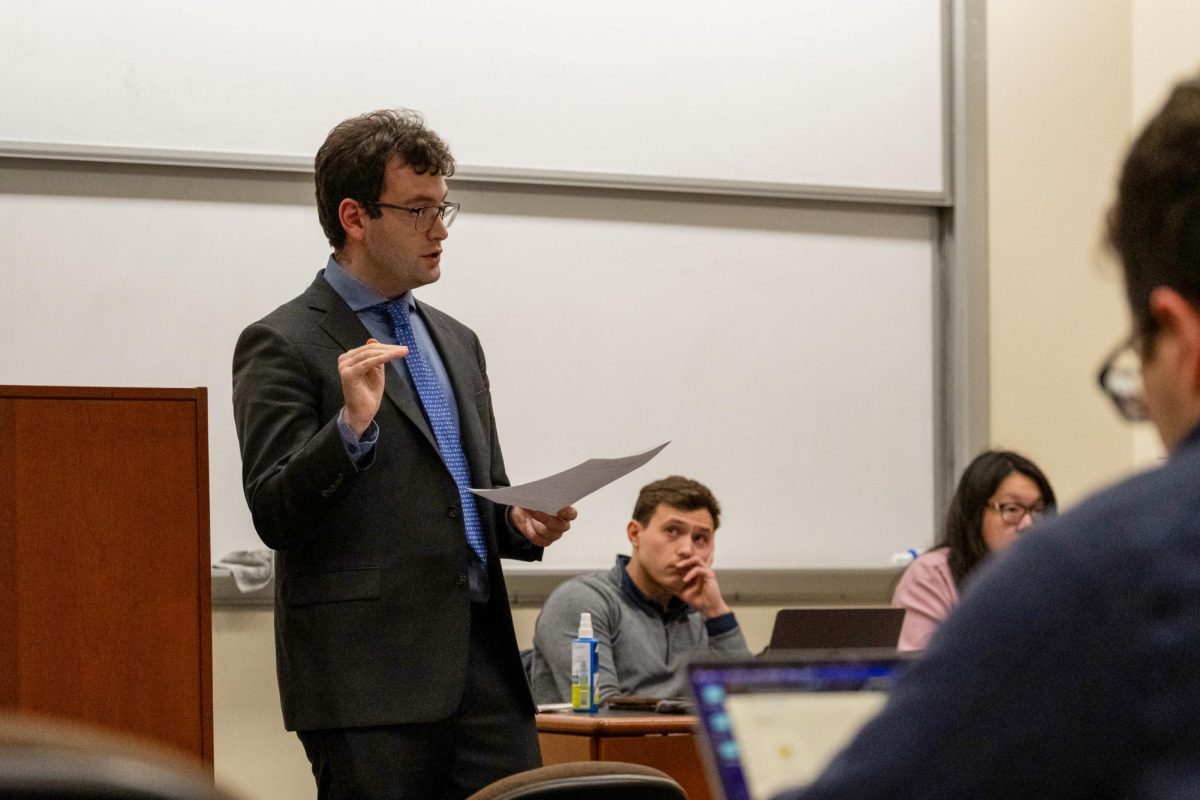This post was written by Hatchet staff writer Catherine Moran.
A four-person panel part of the International Monetary Fund forum analyzed the financial challenges and possible solutions for Nigeria, India and Rwanda Friday.
Two finance ministers and two economic experts tackled individual factors affecting each country along with the countries’ overall impact on the global economy. Nancy Birdsall, the founding president of the Center for Global Development in D.C., moderated the discussion.
IMF Deputy Managing Director Mitsuhiro Furusawa started off the discussion by expressing optimism for the three countries’ financial futures, but the experts said that isn’t necessarily the case.
1. Nigeria
Kemi Adeosun, the minister of finance for Nigeria, said Nigeria’s overdependence on oil for most of the government’s revenue has put the country’s finances in a vulnerable position. Along with the dip in oil prices, Nigeria ran out of its reserves during the financial crisis of 2008 and now no longer has any financial buffers, she said.
“Indeed it is in tough times you can pull their key reforms,” she said. “All of the success stories of Africa have come from conflict. Economic failures can be a conflict.”
Adeosun said she would like to see Nigeria increase exports, create more jobs and ensure tax collection, especially after it was recently discovered that more than 300 companies in the country never paid taxes. Even with factors like these crippling Nigeria’s economy, Adeosun expressed concern that foreign assistance could destabilize the country.
“There’s a lot of stigma in Nigeria around the IMF that is not positive,” she said. “The IMF thinks it could be a doctor. If we are sick, we have our own local doctors.”
2. India
Arvind Subramanian, the chief economic adviser to the government of India, said India’s economy is improving partly because the country has been democratizing quickly.
“India is doing well,” Subramanian said. “We think that the rough patch will pass over.”
Subramanian stressed the importance of diversification of resources for the financial well-being of countries who depend on one major product or source for revenue, like Nigeria’s dependence on oil.
“When oil prices go up, the frenzy for money will not allow you to do anything,” he said.
3. Rwanda
Claver Gatete, the minister of finance and economic planning for Rwanda, said the nation has worked on stabilizing its economy after the 1994 genocide, but it could improve on three key elements for “establishing an industrial path”: More people allowed to invest in the public sector, an increase in tax pays and businesses taking advantage of the country’s minerals and other commodities.
“After the genocide, we don’t want to leave anyone behind,” he said. “We have to find innovative ways of doing things.”




